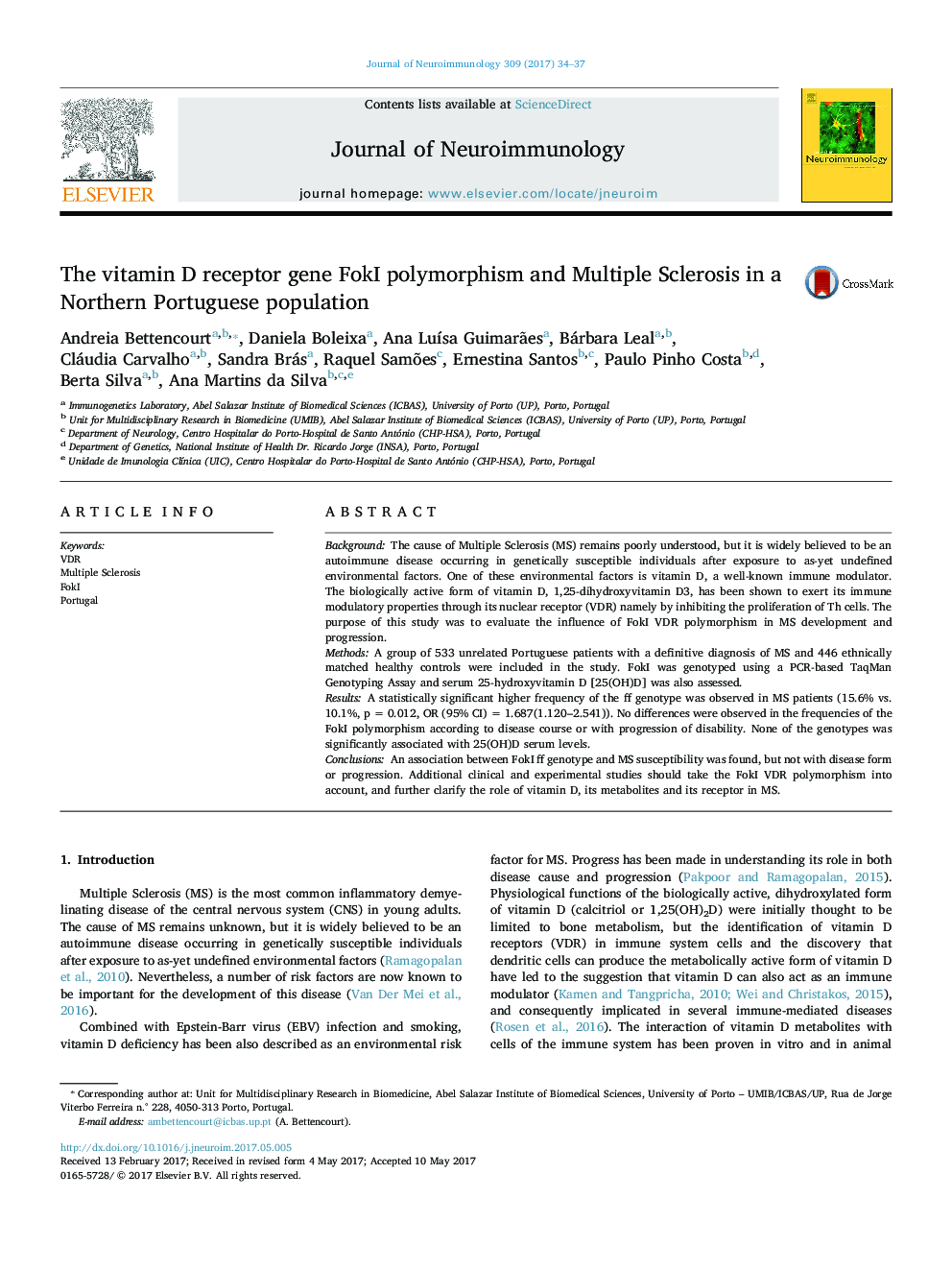| Article ID | Journal | Published Year | Pages | File Type |
|---|---|---|---|---|
| 5630313 | Journal of Neuroimmunology | 2017 | 4 Pages |
â¢Vitamin D can act as an important immune modulator.â¢Calcitriol performs its biological activities through VDR-mediated gene regulation.â¢We studied the influence of FokI polymorphism on MS susceptibility in Portuguese patients.â¢An association between FokI ff genotype and MS susceptibility was found.
BackgroundThe cause of Multiple Sclerosis (MS) remains poorly understood, but it is widely believed to be an autoimmune disease occurring in genetically susceptible individuals after exposure to as-yet undefined environmental factors. One of these environmental factors is vitamin D, a well-known immune modulator. The biologically active form of vitamin D, 1,25-dihydroxyvitamin D3, has been shown to exert its immune modulatory properties through its nuclear receptor (VDR) namely by inhibiting the proliferation of Th cells. The purpose of this study was to evaluate the influence of FokI VDR polymorphism in MS development and progression.MethodsA group of 533 unrelated Portuguese patients with a definitive diagnosis of MS and 446 ethnically matched healthy controls were included in the study. FokI was genotyped using a PCR-based TaqMan Genotyping Assay and serum 25-hydroxyvitamin D [25(OH)D] was also assessed.ResultsA statistically significant higher frequency of the ff genotype was observed in MS patients (15.6% vs. 10.1%, p = 0.012, OR (95% CI) = 1.687(1.120-2.541)). No differences were observed in the frequencies of the FokI polymorphism according to disease course or with progression of disability. None of the genotypes was significantly associated with 25(OH)D serum levels.ConclusionsAn association between FokI ff genotype and MS susceptibility was found, but not with disease form or progression. Additional clinical and experimental studies should take the FokI VDR polymorphism into account, and further clarify the role of vitamin D, its metabolites and its receptor in MS.
